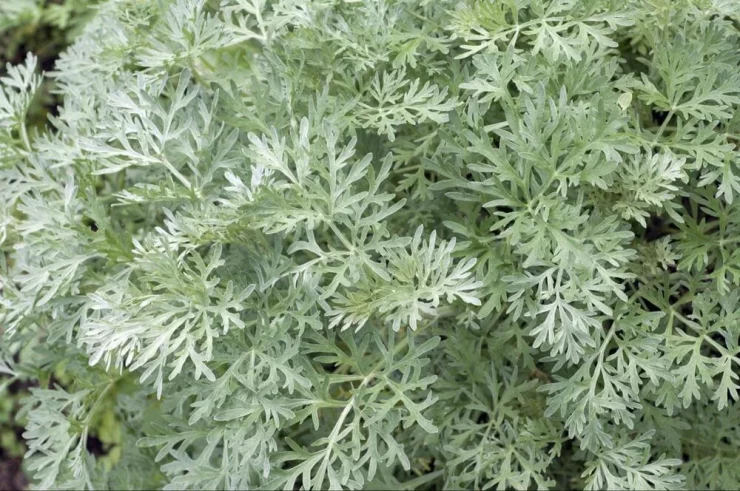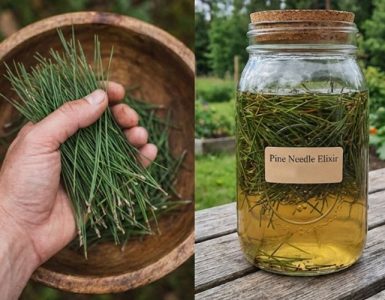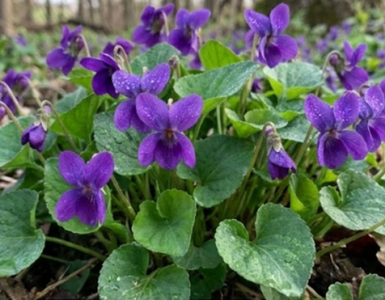Wormwood (Artemisia absinthium) is a perennial herb known for its distinctive aroma, bitter taste, and impressive array of medicinal properties. Historically used in traditional medicine and as a key ingredient in the production of absinthe, this herb has captured attention for its potential health benefits and versatile applications. With a history that dates back to ancient civilizations, wormwood continues to be valued as a natural remedy for various ailments.
What is Wormwood?
Scientific Name: Artemisia absinthium
Common Names: Wormwood, green ginger, absinthe wormwood.
Family: Asteraceae (daisy family)
Native Range: Europe, North Africa, and Asia, though it is now cultivated worldwide.
This silvery-green herb grows to about 2–4 feet tall and thrives in sunny, well-drained environments. Its leaves are feathery and aromatic, and it produces small yellow flowers. Wormwood owes its medicinal properties to its rich profile of active compounds, including thujone, absinthin, and various flavonoids and essential oils.
Health Benefits of Wormwood
- Supports Digestive Health
Wormwood has been used for centuries to aid digestion. Its bitter compounds stimulate the production of digestive enzymes and bile, which helps:
Relieve bloating and gas.
Improve appetite.
Treat indigestion and constipation.
- Antimicrobial and Antiparasitic Properties
The herb is well-known for its ability to combat infections and parasites. Historically, it has been used to treat:
Intestinal worms: The name “wormwood” stems from its traditional use as a remedy for parasitic infections like roundworms and pinworms.
Bacterial and fungal infections: Wormwood’s antimicrobial compounds help fight harmful bacteria and fungi.
- Anti-Inflammatory Effects
Wormwood contains antioxidants and compounds like chamazulene and flavonoids that reduce inflammation. It may help manage conditions such as:
Rheumatoid arthritis.
Muscle pain and joint inflammation.
- Enhances Liver Health
The herb has been used in traditional medicine to detoxify the liver and promote its overall health by stimulating bile production and helping the liver process toxins more effectively. - Potential Anticancer Properties
Preliminary studies suggest that wormwood compounds like artemisinin may have anticancer effects, particularly against breast and colon cancer cells. However, more research is needed to confirm these findings. - Relieves Menstrual Pain
Wormwood has been traditionally used to alleviate menstrual discomfort and regulate menstrual cycles. Its anti-inflammatory and antispasmodic properties help reduce cramps and uterine inflammation. - Enhances Mental Clarity
The herb has mild sedative and stimulating effects that may help improve focus, relieve stress, and alleviate mild depression or anxiety.
Uses of Wormwood
- Herbal Teas and Tinctures
Wormwood tea or tinctures are commonly used to treat digestive issues and parasites. However, the taste is extremely bitter, so it’s often mixed with other herbs like peppermint or honey for flavor.
How to make wormwood tea:
Steep 1 teaspoon of dried wormwood leaves in hot water for 5–10 minutes.
Strain and drink in moderation.
- Essential Oil
Wormwood essential oil is used in aromatherapy for relaxation and stress relief. It’s also applied topically (diluted with carrier oil) to alleviate joint pain and muscle aches. - Culinary Uses
Although less common today, wormwood has been used as a bitter flavoring in culinary dishes. It remains a key ingredient in traditional absinthe and some vermouths. - Parasite Cleanse
Wormwood is often included in herbal formulations designed to rid the body of parasites. It’s typically combined with other herbs like black walnut hulls and cloves for a more effective cleanse. - Natural Pest Repellent
The strong aroma of wormwood makes it an effective natural insect and pest repellent. Dried wormwood leaves can be placed around the home or garden to keep bugs like moths, fleas, and mosquitoes away. - Skin Health
When diluted, wormwood can be applied topically to treat skin conditions such as eczema, acne, or minor wounds due to its antimicrobial properties.
Precautions and Side Effects
While wormwood has many benefits, it must be used with caution due to the presence of thujone, a compound that can be toxic in high doses. Here are some important considerations:
Avoid Overconsumption: Excessive intake of wormwood can cause nausea, dizziness, or seizures.
Pregnancy and Breastfeeding: Wormwood should not be used during pregnancy or breastfeeding, as it may stimulate uterine contractions or pass through breast milk.
Allergies: People allergic to plants in the Asteraceae family (such as ragweed or daisies) may be sensitive to wormwood.
Drug Interactions: Wormwood may interact with medications like anticoagulants, antiepileptics, or sedatives. Consult a healthcare provider before use.
How to Use Wormwood Safely
Follow Dosage Guidelines:
Wormwood should be used sparingly and for short periods. Stick to recommended dosages provided on product labels or by herbalists.
Dilution for Topical Use:
Always dilute wormwood essential oil with a carrier oil like coconut or olive oil to prevent skin irritation.
Consult a Professional:
If you’re new to wormwood or have underlying health conditions, consult a healthcare provider or herbalist before use.
Cultural and Historical Significance
Wormwood has a rich history across cultures:
Ancient Medicine: Used in traditional Chinese medicine and by the ancient Greeks and Romans for its medicinal properties.
Absinthe: Made famous in the 19th century as the key ingredient in absinthe, a highly potent and controversial alcoholic drink.
Folklore: Wormwood has been associated with warding off evil spirits and was often hung in homes or burned as incense for protection.
Wormwood is a fascinating and versatile herb with a long history of medicinal and cultural use. From aiding digestion and fighting parasites to reducing inflammation and improving skin health, it offers a wide range of benefits. However, due to its potency and the presence of thujone, it’s crucial to use wormwood responsibly and in moderation. Whether used as tea, tincture, or essential oil, wormwood continues to prove itself as one of nature’s most intriguing and powerful plants.






Add comment